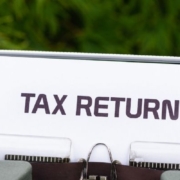The 2021/22 federal budget includes ten measures around tax and super.
2021/22 Federal Budget
This year’s budget is about stimulating growth in a post-COVID world. It is not about systematic change, but there are still some changes you need to know about.
Andrew Henshaw of Velocity Legal in Melbourne will discuss these with you in this episode. Here is what we learned but please listen in as Andrew explains all this much better than we ever could.
To listen while you drive, walk or work, just access the episode through a free podcast app on your mobile phone.
2021/22 Federal Budget
On 11 May 2021, Treasurer Josh Frydenberg handed down the 2021/22 federal budget, which is all about stimulating economic growth in a post-COVID world.
In addition to significant investments in infrastructure, aged care, health and the digital economy, the budget contains a raft of tax changes and reforms aimed at driving down unemployment, boosting industry and alleviating tax burdens for individuals and businesses alike.
Here are the ten most relevant changes around tax and super.
# 1 – Taxing Point for Employee Share Schemes
The taxing point is changing in the case of redundancy.
# 2 – Instant Asset Write Off and Tax Carry Back
The instant asset write off and the tax carry back will last until 30 June 2023 – at least. But remember that both are only about timing.
# 3 – Point Based System for Individual Tax Residency
Australia’s residency system for individuals is broken. And the government recognised this and is introducing a points based system.
# 4 Industry Specific Concessions
From 1 July 2022, corporate income derived from Australian medical and biotechnology patents will be taxed at a concessional effective corporate tax rate of 17 percent.
# 5 – Helping Small Business in Tax Disputes
At the moment it is “Pay Now, Argue Later”. Even if you have a dispute with the ATO at the AAT, you still have to pay by the due date. This is to change. After this change you will be able to tell the ATO to … off until the dispute has been sorted out.
# 6 – Downsizer from 60 and work test from 75
From 1 July 2022, the age threshold for downsizer contributions will decrease from 65 to 60.
And the age threshold for the work test will increase to 75.
# 7 – Super for Everybody
There is currently a $450 per month threshold. If you earn less than that, no super. This is changing. From 1 July 2022 all employees get super, no matter how little their salaries and wages.
# 8 – Digital Economy
The Budget contains a raft of proposed measures directed towards bolstering Australia’s digital and tech economy.
You will be able to self-assess the effective lives of certain intangible depreciating assets (including patents, registered designs, copyrights, and in-house software) acquired from 1 July 2023.
There will be a 30% refundable tax offset for qualifying Australian digital games expenditure.
# 9 – Self-Education Expenses
Currently, the first $250 of self education expenses is not deductible. Why? No idea. But at least this $250 threshold is going.
The rest is not changing. So you still can only deduct training for current employment but not for future employment.
# 10 – NPO Annual Disclosure
The ATO will receive capital funding to build an online reporting system for NPO (Not For Profit) claiming income tax exemptions. Currently the ATO has little insight into what NPOs are actually doing.
# 11 – Low-and-Middle-Income Tax Offset (LMITO)
The low-and-middle-income tax offset (LMITO) will now last until 30 June 2021. It is a tax rebate of up to $1,080. The LMITO reaches its peak at a taxable income between $48k and $90k and then finishes up at $126k.
What’s Not in the Budget?
While the Budget includes a raft of tax announcements, there were several significant items which were not part of the Budget, despite having been on the agenda for reform for quite some time. These include:
- Division 7A reform (first flagged in the 2016-17 Budget);
- a review of the CGT rollovers, and asset merger roll over relief;
- tax concessions for small business (including the small business CGT concessions and Small Business Restructure Relief);
- the general 50% CGT discount; and
- CGT for foreign beneficiaries of Australian discretionary trusts.
With the focus being on fostering economic recovery following the COVID-19 pandemic, perhaps it is not surprising that this Budget has not attempted to make significant or deep reforms to the tax system.
This year’s budget is about big spending, but not about tax changes. And that would be fine if our tax system was perfect. We don’t need changes just for the sake of changes. But our tax system is far from perfect. And hence a little bit more of systematic improvement would have been good. But it is what it is. There is always another year.
MORE
Disclaimer: Tax Talks does not provide financial or tax advice. All information on Tax Talks is of a general nature only and might no longer be up to date or correct. You should seek professional accredited tax and financial advice when considering whether the information is suitable to your or your client’s circumstances.
Last Updated on 24 August 2021
Tax Talks spoke to Andrew Henshaw - Director at Velocity Legal - for more details.







